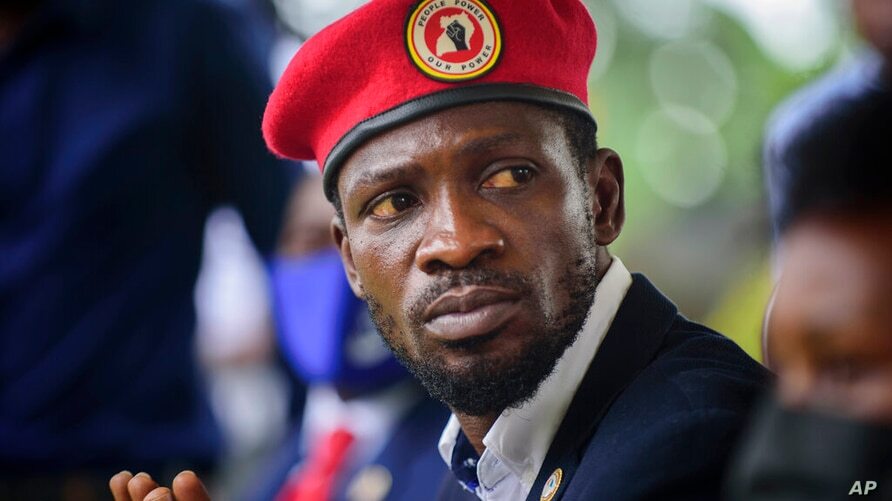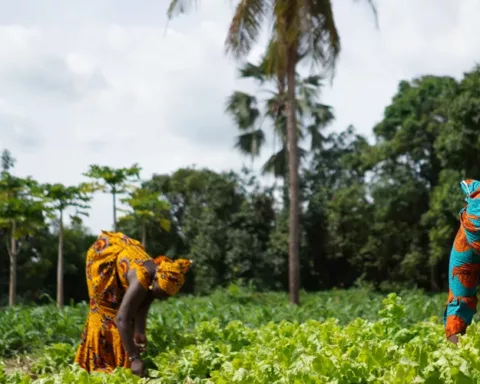WASHINGTON / UGANDA – The national electoral commission declared President Yoweri Museveni the winner of a sixth term with 58% of the vote. But Robert Kyagulanyi, a politician, singer and the main opposition candidate — commonly known by his stage name, Bobi Wine — said the vote was corrupted by harassment of his supporters and ballot box stuffing. Several opposition candidates agree with Wine and are calling for national defiance of Museveni’s government.
Wine was put under de facto house arrest for 12 days after the election but still marshaled international support. Human rights groups and foreign governments — including the United States — slammed the government for shutting down the internet during the election and banning outside voting observers.
‘There will be consequences’
U.S. Senator Bob Menendez of New Jersey said he planned to work with the administration of President Joe Biden to respond and hold Uganda accountable for irregularities.
“There will be consequences for those that repeatedly engage in the willful subversion of democracy,” he said.
Pat Thaker, an analyst at the Economist Intelligence Unit, the research and analysis division of British media firm Economist Group, said Museveni’s government went to great lengths to silence the opposition. Thaker believes that is evidence that the government sees Wine as a serious threat to Museveni’s rule.
“In fact, you could say [Wine] turned the lopsided political environment on its head and he’s actually started something that cannot be reversed,” Thaker said in an interview with VOA. “He has opened Pandora’s box.”
Youth at odds with Museveni?
The contested election stirred the passion of Uganda’s disenchanted young population. Uganda is one of the youngest countries in the world, with a median age of less than 16, according to the CIA World Factbook. But more than half of young people of working age are unemployed.
“This is the population that is internet-connected, completely connected to the world, including other countries in the region,” Thaker said. “They are the voice of today and tomorrow. So, many young people see Museveni as the often out-of-touch dictator unable to meet the needs of the country’s massive unemployed workforce. It is stuck in a downward spiral of declining governance, poor economic management and increasing local insecurity.”
Thaker, who was born and raised in Uganda, believes Museveni and his advisers are aware of the threat from the younger population. which is why the country ordered an internet shutdown for approximately 100 hours before and after the election.
“The government’s recent actions — cuts, shutting down the internet, the very aggressive, harsh response to protest [of] any opposition voice in any form, media shut down, lockdown of social media, television, radio — they actually laid the groundwork for future civil conflict,” she said.
Growing voices among young opposition figures are calling for change. One of them is the only female candidate in this year’s presidential election, Nancy Kalembe.
“[Museveni] said his first act of kindness and love for this country was to go to the bush and fight for our freedom, the Ugandans,” Kalembe told VOA. “At the time, I was 6 years old. My opinion would have been that the next best act of kindness is to hand over power peacefully.”
President still has supporters
A 76-year-old former rebel leader, Museveni lauded the 57% of Uganda’s 18 million registered voters who participated in the election, and he declared the poll free and fair.
“I, therefore, thank the people of Uganda and I congratulate you for turning up in big numbers and voting for the candidates and for the parties of your choice,” he said when the results were certified. “I think this may turn out to be the most cheating-free election since 1962.”
Museveni’s supporters say the country’s economy has improved under his leadership and the president has prioritized infrastructural progress. The country’s GDP grew by an average of 6.7% prior to the global pandemic over a three-year span. And Museveni has also been commended for how he has led efforts to battle the virus. He has also been praised for the country’s open-door policy toward refugees.
“My expectation from President Museveni, first of all, is security,” a supporter of his told a Reuters reporter. “He has done good. Second, he’s going to finish up the roads he has been constructing, the hospitals, education. He’s going to do more, more, more, what I am expecting [of] him.”
Some local analysts speculated that Museveni is paving the way for his son, a commander of the country’s special forces, to succeed him.
But Wine and his supporters have vowed to challenge Museveni’s victory in court.
‘Reject this mockery’
“This and many other irregularities and fraudulent actions, for which we have overwhelming evidence, prove one thing: This has been the most fraudulent election in the history of Uganda,” he said. “We call upon the people of Uganda to reject this mockery and to refuse to acknowledge Museveni as the winner of the … polls. We defeated Museveni. We defeated them, and we were supposed to be announced as winners.”
Willy Mayambala, an independent presidential candidate, told local reporters that none of the opposition candidates had representatives in the tallying centers.
“We have been engaging the Electoral Commission before the campaigns and during the campaigns when the police [were] brutalizing us,” he said. “But up to today, we have never received any response.”
Halima Athumani contributed to this report






